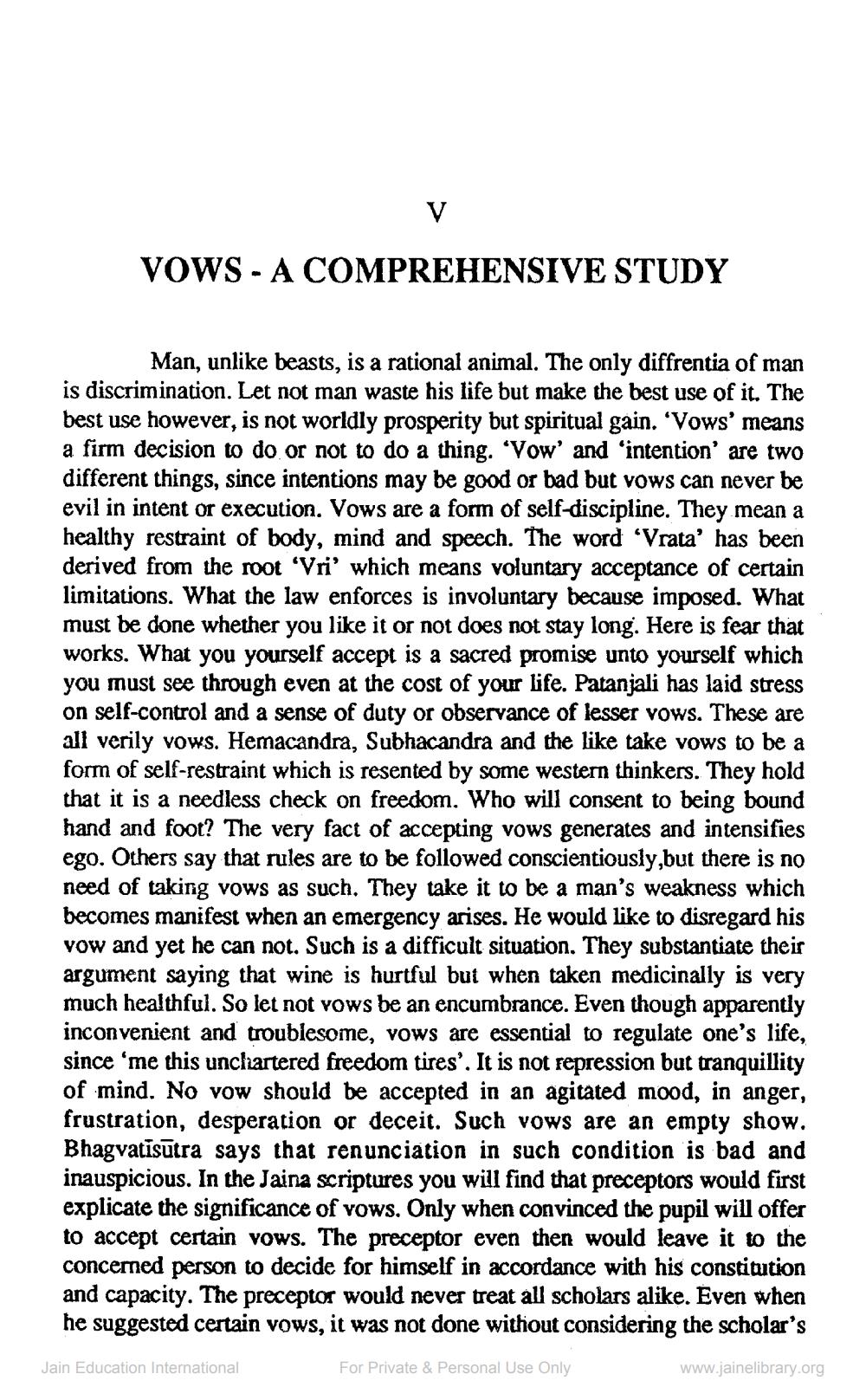________________
V
VOWS A COMPREHENSIVE STUDY
Man, unlike beasts, is a rational animal. The only diffrentia of man is discrimination. Let not man waste his life but make the best use of it. The best use however, is not worldly prosperity but spiritual gain. 'Vows' means a firm decision to do or not to do a thing. 'Vow' and 'intention' are two different things, since intentions may be good or bad but vows can never be evil in intent or execution. Vows are a form of self-discipline. They mean a healthy restraint of body, mind and speech. The word 'Vrata' has been derived from the root 'Vri' which means voluntary acceptance of certain limitations. What the law enforces is involuntary because imposed. What must be done whether you like it or not does not stay long. Here is fear that works. What you yourself accept is a sacred promise unto yourself which you must see through even at the cost of your life. Patanjali has laid stress on self-control and a sense of duty or observance of lesser vows. These are all verily vows. Hemacandra, Subhacandra and the like take vows to be a form of self-restraint which is resented by some western thinkers. They hold that it is a needless check on freedom. Who will consent to being bound hand and foot? The very fact of accepting vows generates and intensifies ego. Others say that rules are to be followed conscientiously,but there is no need of taking vows as such. They take it to be a man's weakness which becomes manifest when an emergency arises. He would like to disregard his vow and yet he can not. Such is a difficult situation. They substantiate their argument saying that wine is hurtful but when taken medicinally is very much healthful. So let not vows be an encumbrance. Even though apparently inconvenient and troublesome, vows are essential to regulate one's life, since 'me this unchartered freedom tires'. It is not repression but tranquillity of mind. No vow should be accepted in an agitated mood, in anger, frustration, desperation or deceit. Such vows are an empty show. Bhagvatisūtra says that renunciation in such condition is bad and inauspicious. In the Jaina scriptures you will find that preceptors would first explicate the significance of vows. Only when convinced the pupil will offer to accept certain vows. The preceptor even then would leave it to the concerned person to decide for himself in accordance with his constitution and capacity. The preceptor would never treat all scholars alike. Even when he suggested certain vows, it was not done without considering the scholar's
For Private & Personal Use Only
www.jainelibrary.org
Jain Education International




